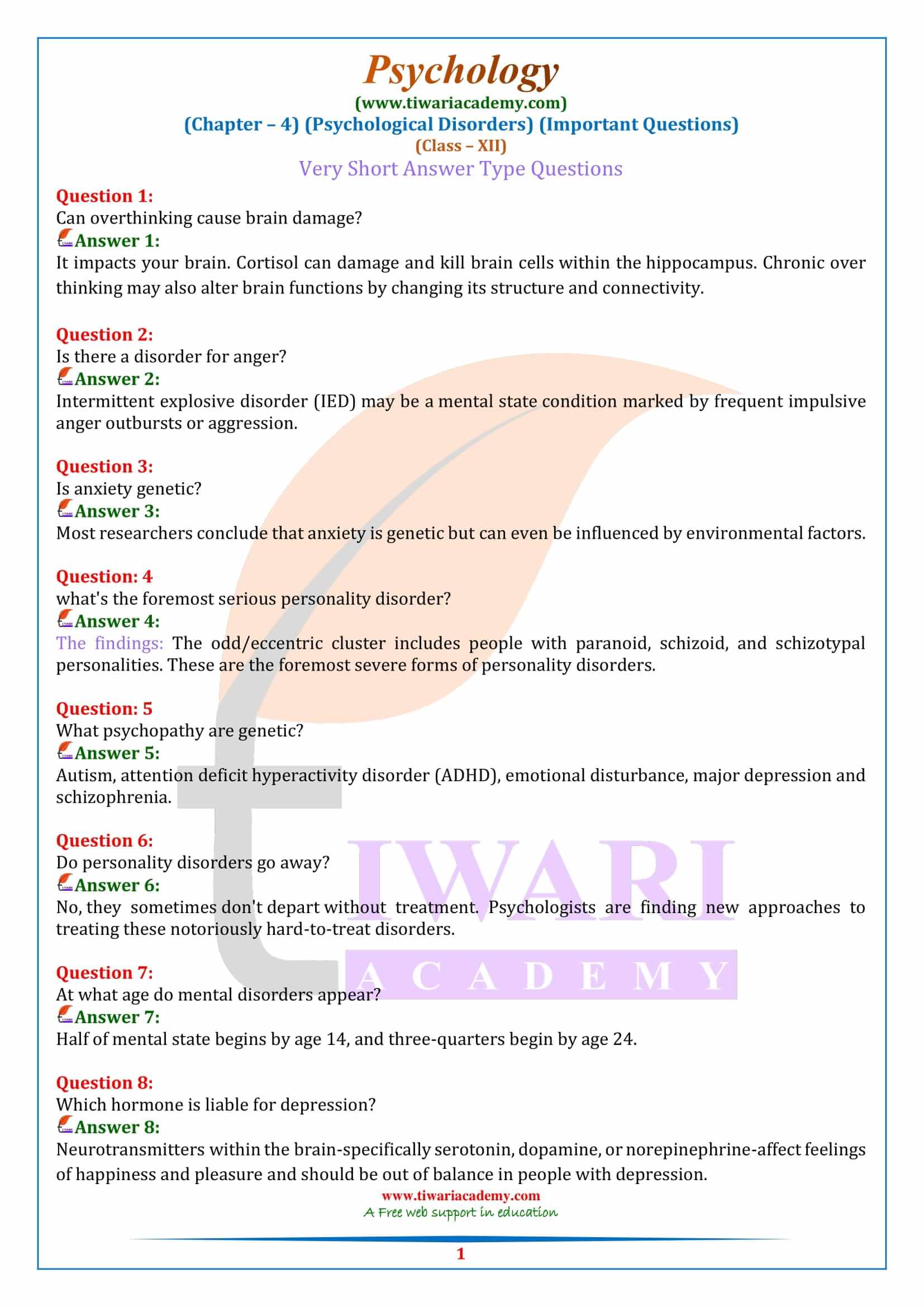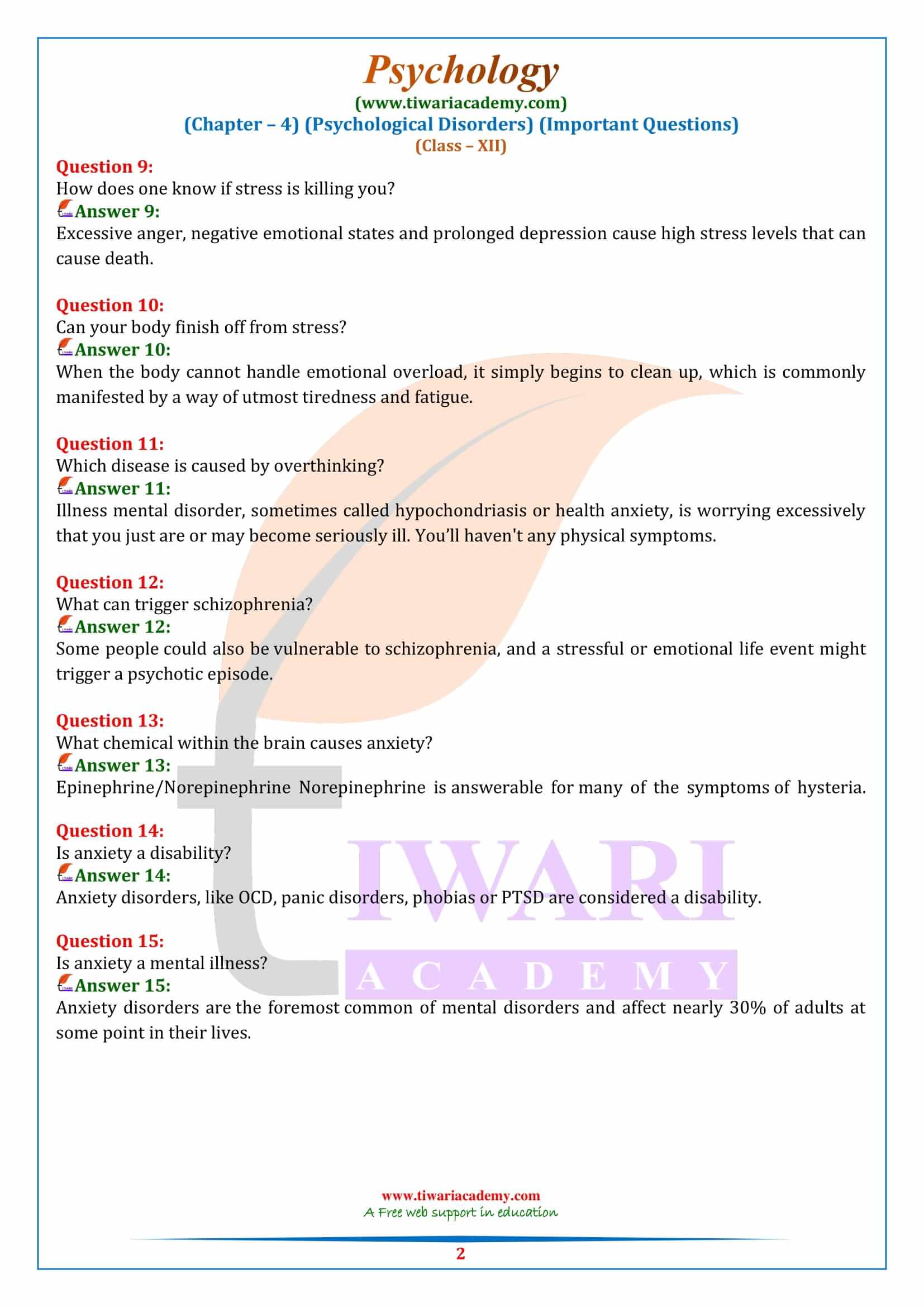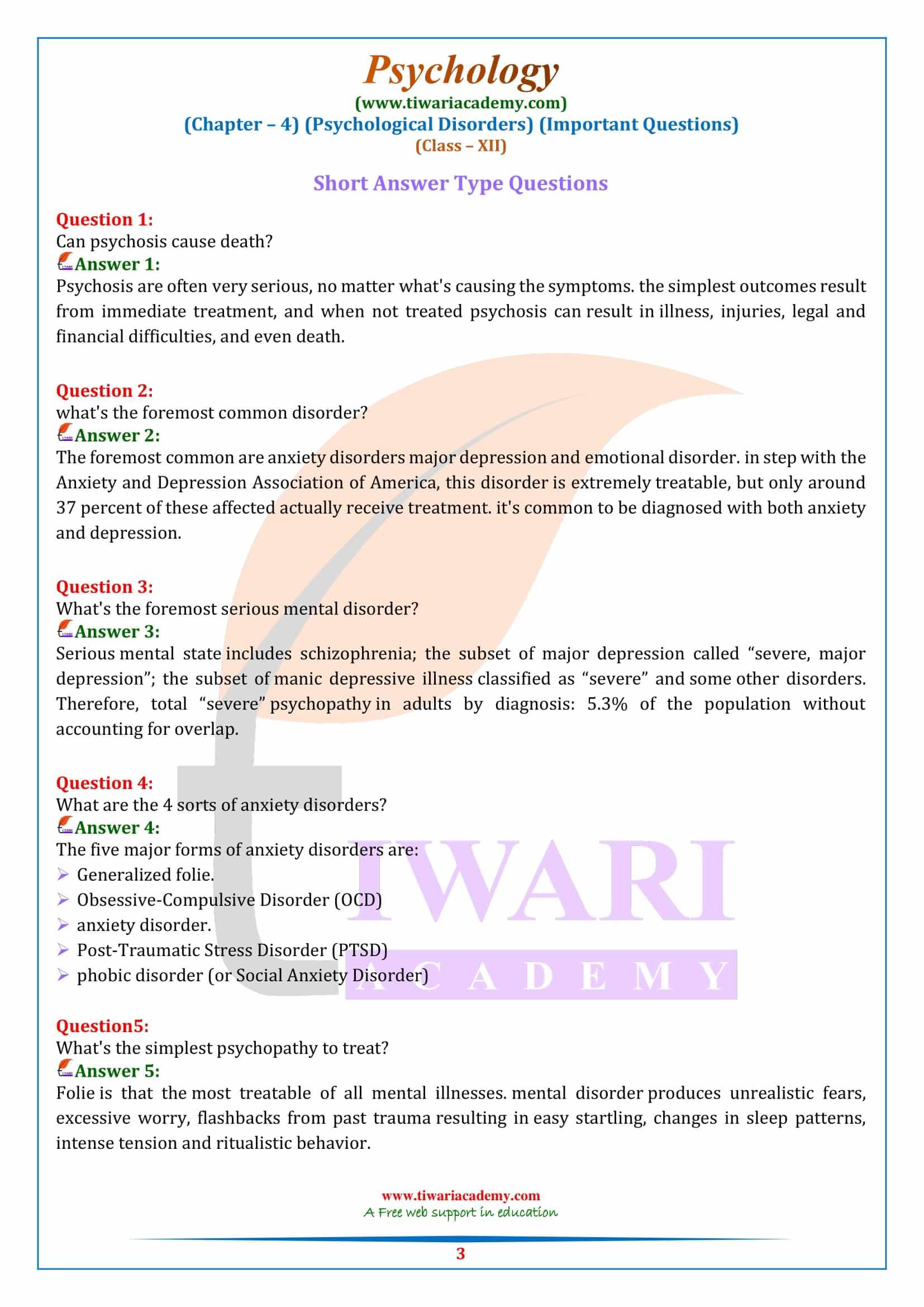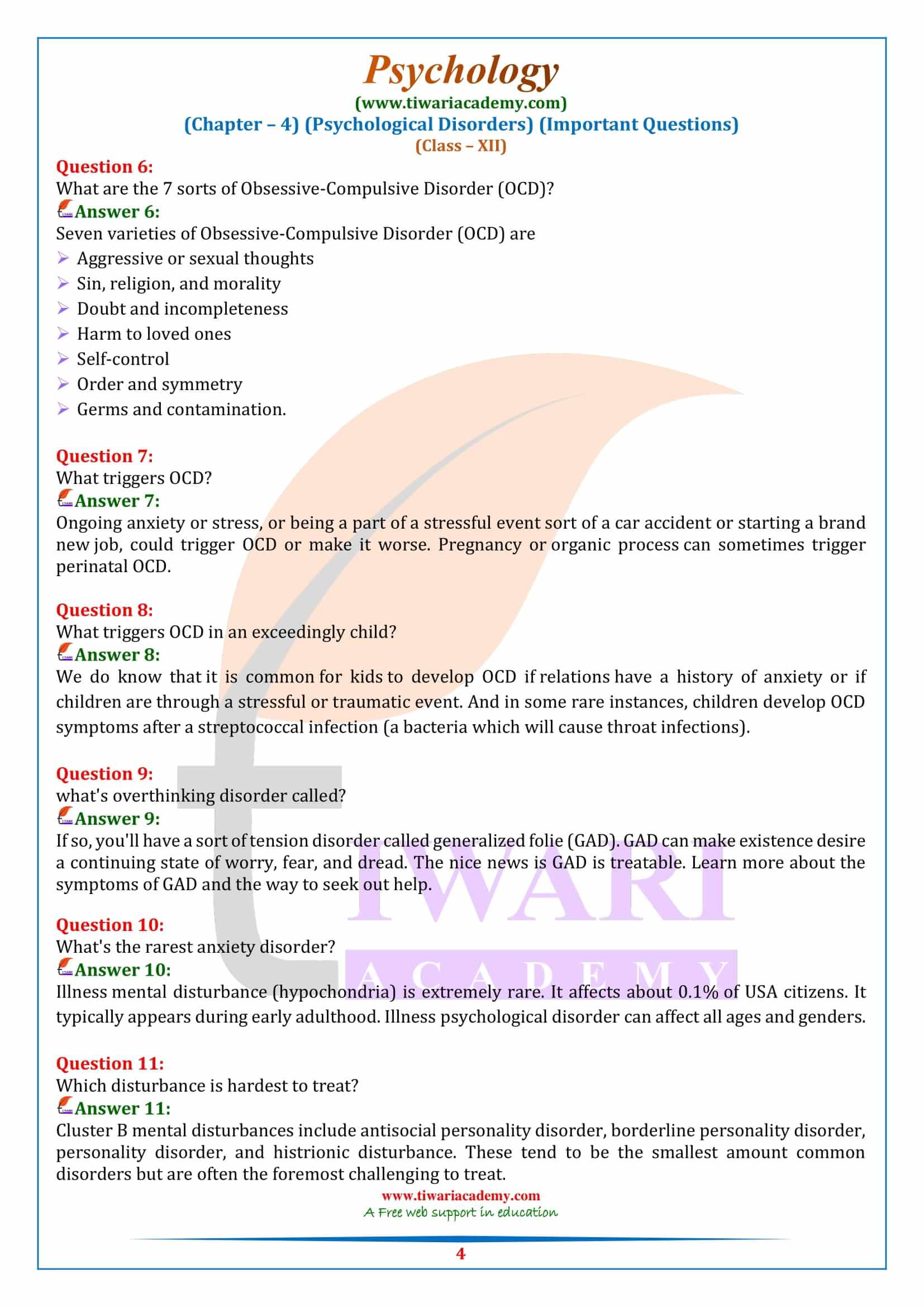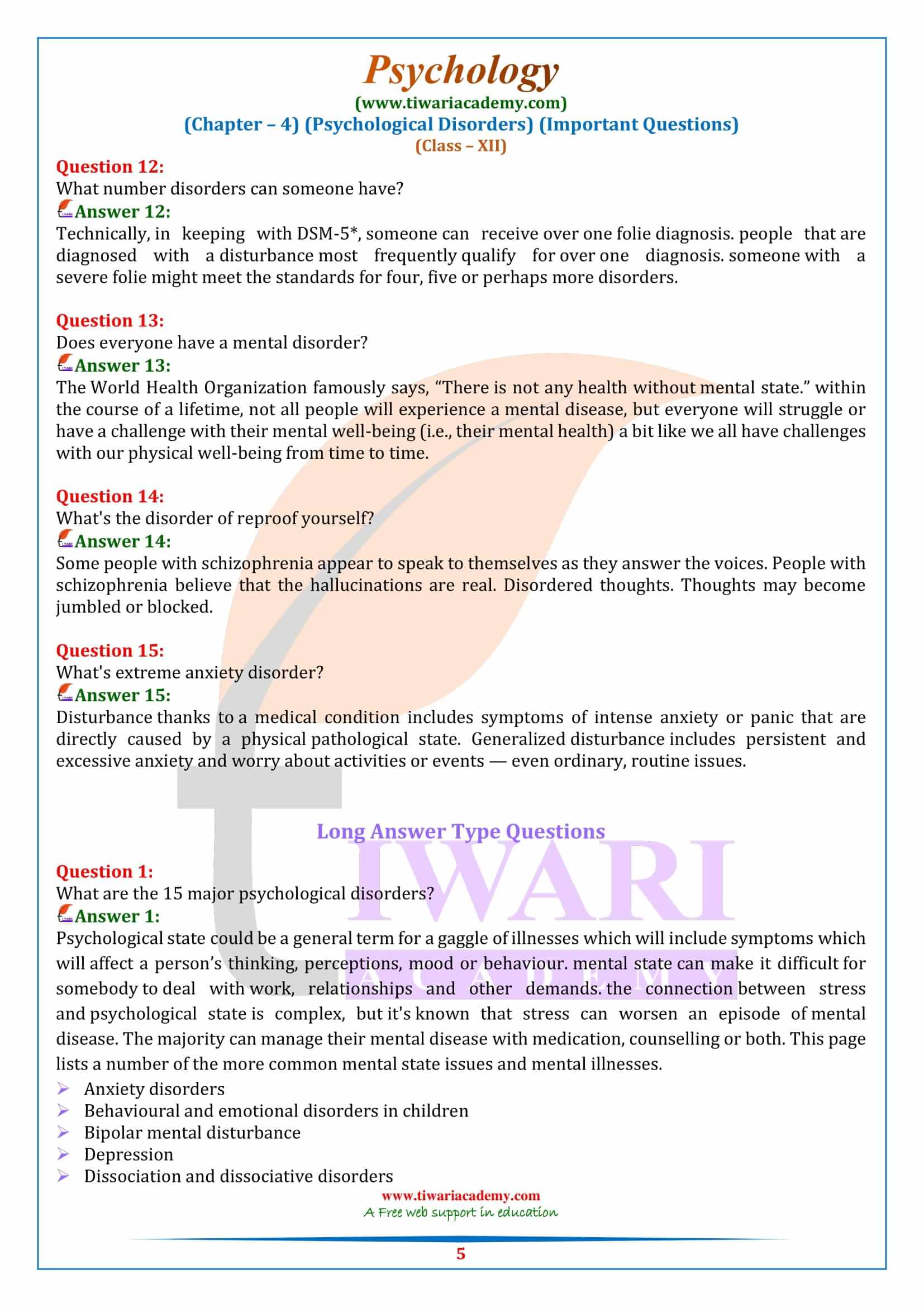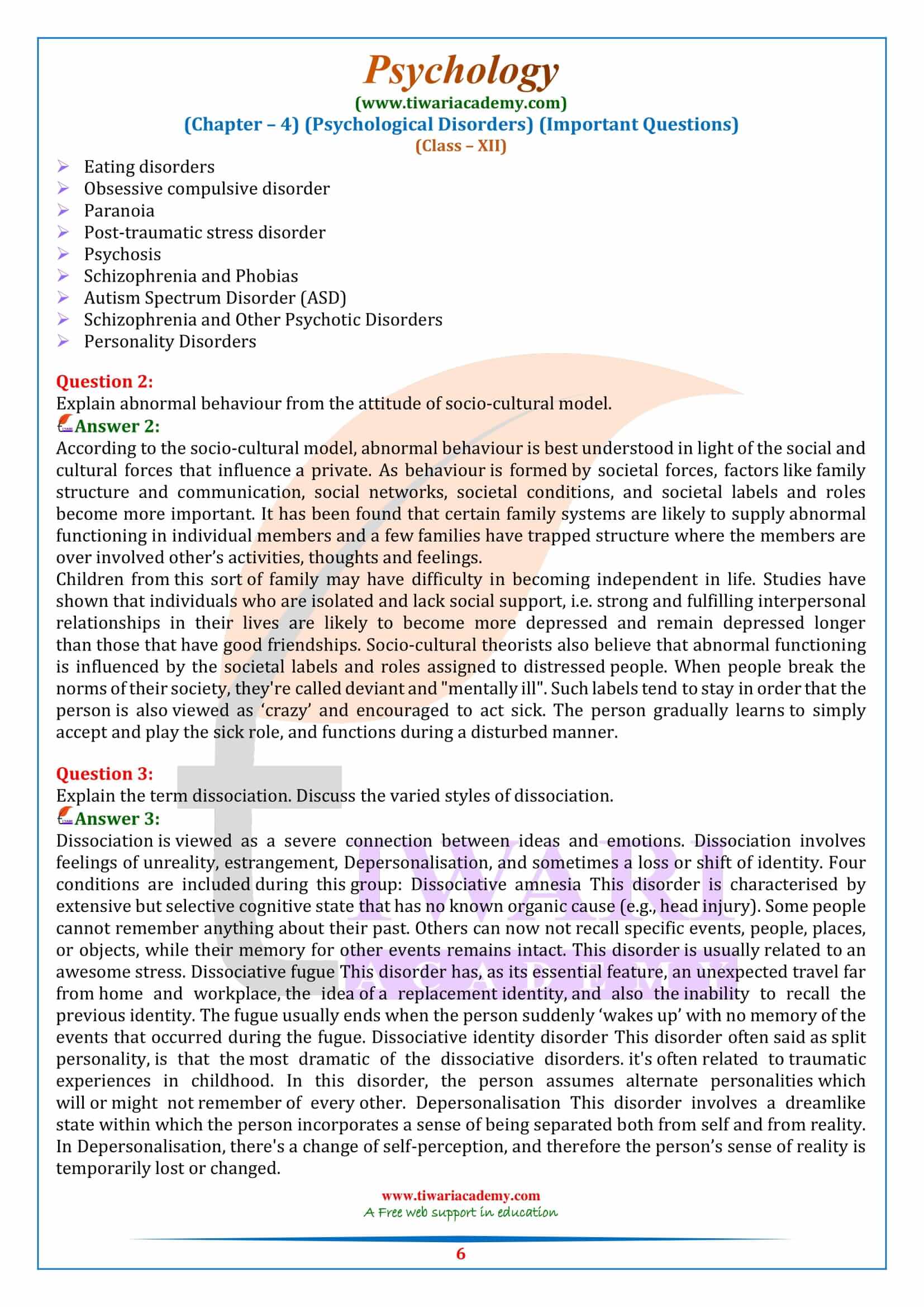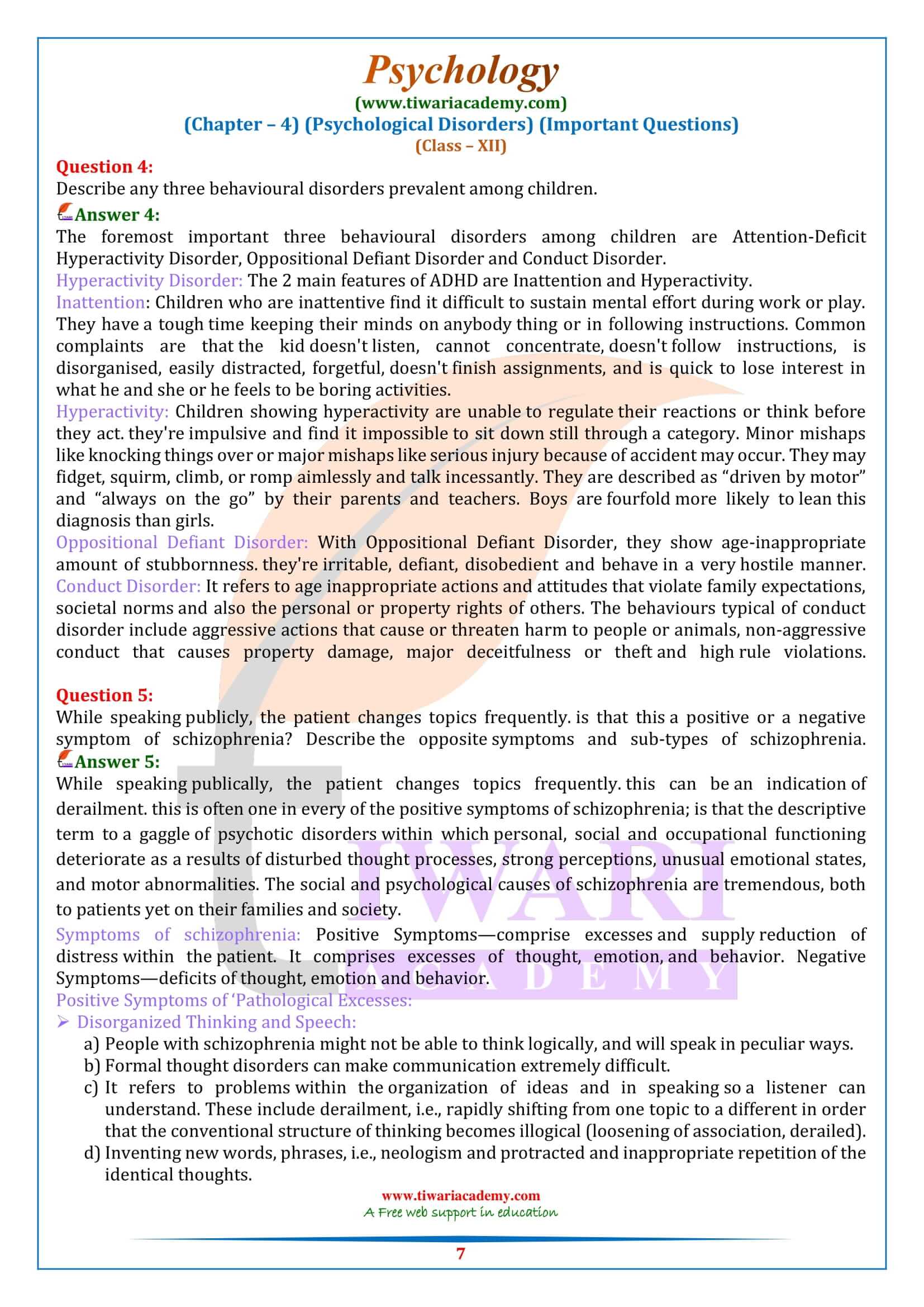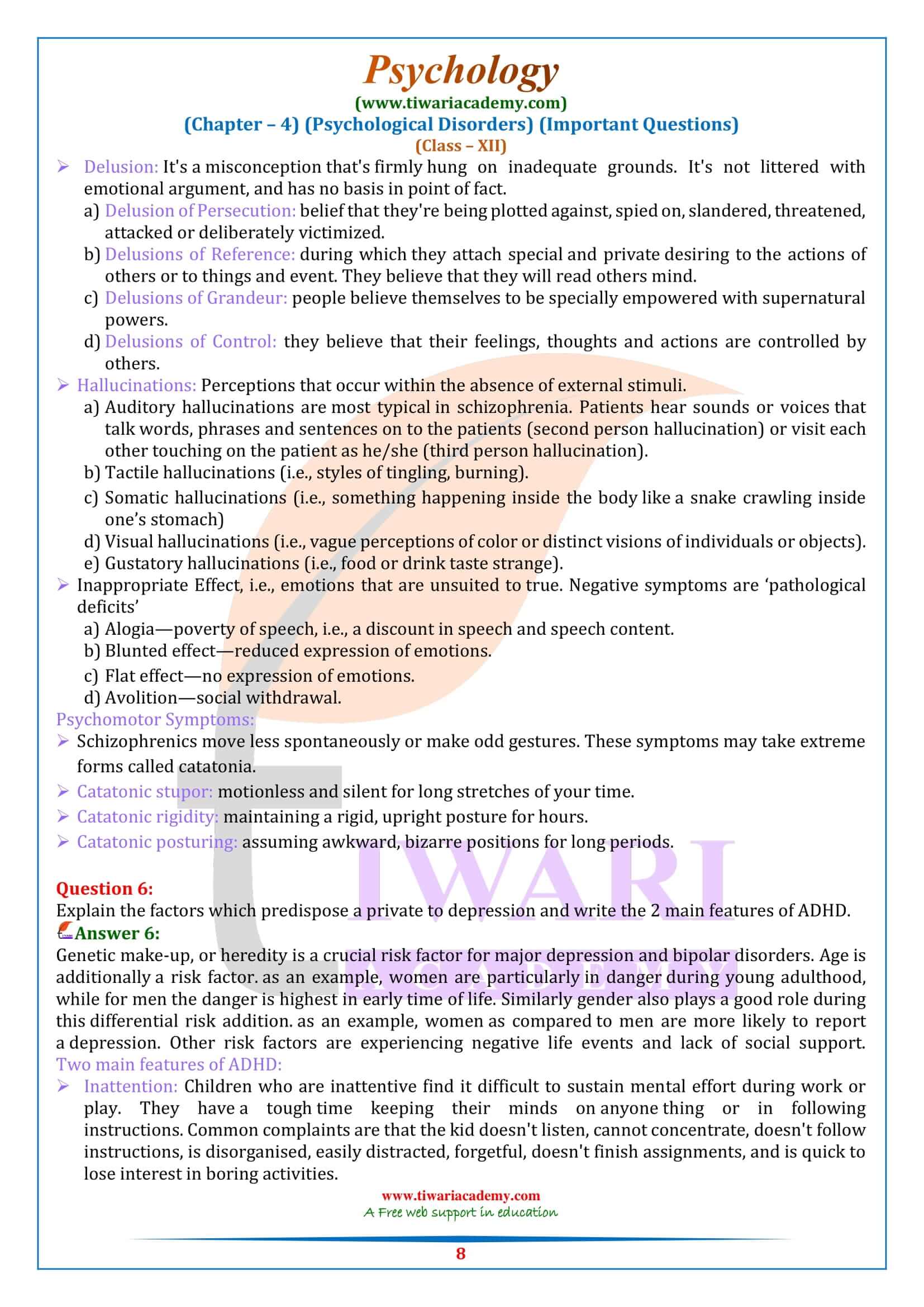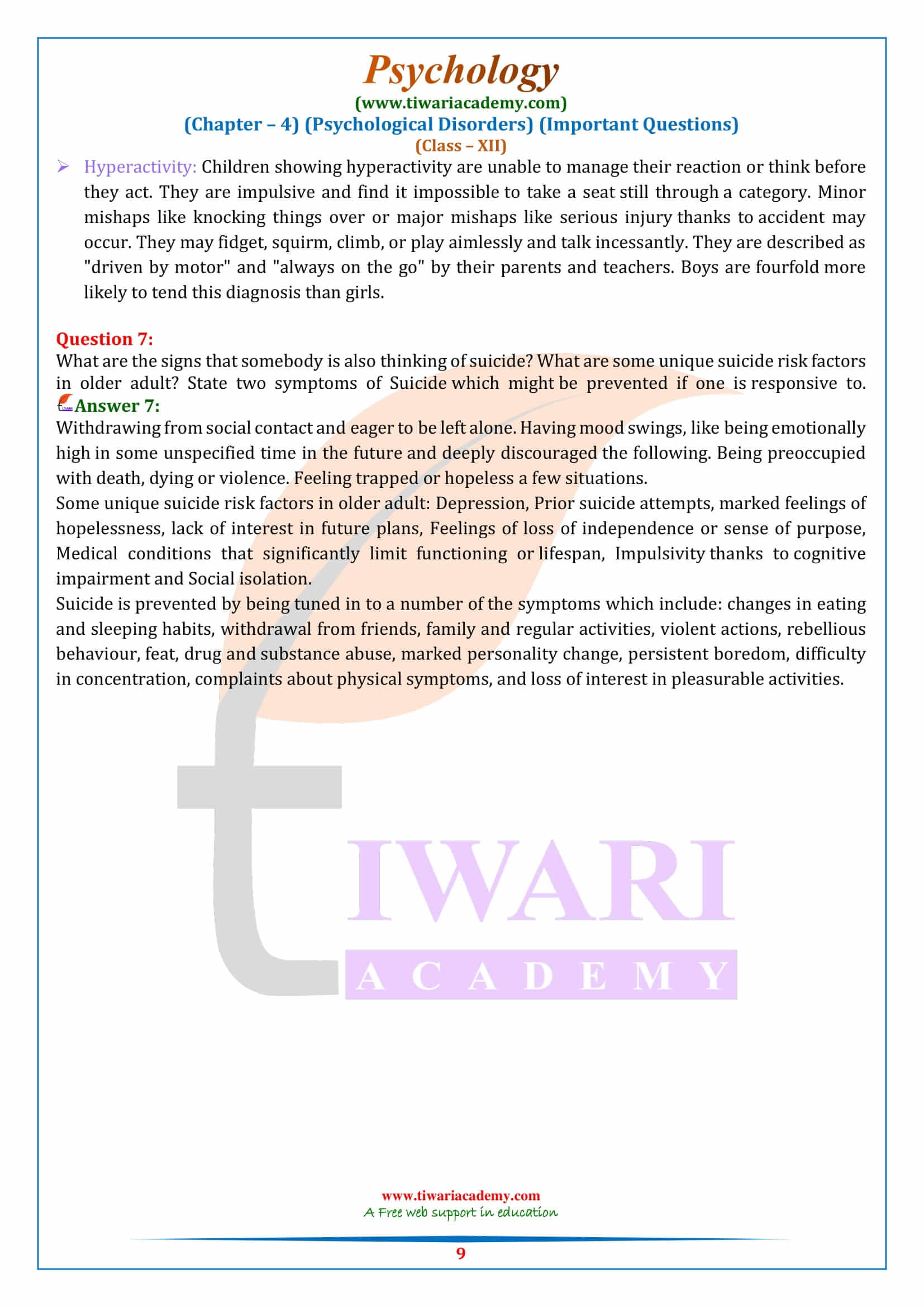Class 12 Psychology Chapter 4 Important Questions of Psychological Disorders updated for CBSE and State board students based on session 2025-26. Students can get here help in class 12 Psychology Chapter 4 Extra Questions to prepare notes and assignments for practice.
Class 12 Psychology Chapter 4 Important Questions
Class 12 Psychology Chapter 4 Extra Questions Answers
Explain abnormal behaviour from the attitude of socio-cultural model.
According to the socio-cultural model, abnormal behaviour is best understood in light of the social and cultural forces that influence a private. As behaviour is formed by societal forces, factors like family structure and communication, social networks, societal conditions, and societal labels and roles become more important. It has been found that certain family systems are likely to supply abnormal functioning in individual members and a few families have trapped structure where the members are over involved other’s activities, thoughts and feelings.
Children from this sort of family may have difficulty in becoming independent in life. Studies have shown that individuals who are isolated and lack social support, i.e. strong and fulfilling interpersonal relationships in their lives are likely to become more depressed and remain depressed longer than those that have good friendships.
Socio-cultural theorists also believe that abnormal functioning is influenced by the societal labels and roles assigned to distressed people. When people break the norms of their society, they’re called deviant and “mentally ill”. Such labels tend to stay in order that the person is also viewed as ‘crazy’ and encouraged to act sick. The person gradually learns to simply accept and play the sick role, and functions during a disturbed manner.
What’s extreme anxiety disorder?
Disturbance thanks to a medical condition includes symptoms of intense anxiety or panic that are directly caused by a physical pathological state. Generalized disturbance includes persistent and excessive anxiety and worry about activities or events — even ordinary, routine issues.
What’s the disorder of reproof yourself?
Some people with schizophrenia appear to speak to themselves as they answer the voices. People with schizophrenia believe that the hallucinations are real. Disordered thoughts. Thoughts may become jumbled or blocked.
Does everyone have a mental disorder?
The World Health Organization famously says, “There is not any health without mental state.” within the course of a lifetime, not all people will experience a mental disease, but everyone will struggle or have a challenge with their mental well-being (i.e., their mental health) a bit like we all have challenges with our physical well-being from time to time.
What number disorders can someone have?
Technically, in keeping with DSM-5*, someone can receive over one folie diagnosis. people that are diagnosed with a disturbance most frequently qualify for over one diagnosis. someone with a severe folie might meet the standards for four, five or perhaps more disorders.
Which disturbance is hardest to treat?
Cluster B mental disturbances include antisocial personality disorder, borderline personality disorder, personality disorder, and histrionic disturbance. These tend to be the smallest amount common disorders but are often the foremost challenging to treat.
What’s overthinking disorder called?
If so, you’ll have a sort of tension disorder called generalized folie (GAD). GAD can make existence desire a continuing state of worry, fear, and dread. The nice news is GAD is treatable. Learn more about the symptoms of GAD and the way to seek out help.
Can psychosis cause death?
Psychosis are often very serious, no matter what’s causing the symptoms. the simplest outcomes result from immediate treatment, and when not treated psychosis can result in illness, injuries, legal and financial difficulties, and even death.
What’s the foremost serious mental disorder?
Serious mental state includes schizophrenia; the subset of major depression called “severe, major depression”; the subset of manic depressive illness classified as “severe” and some other disorders. Therefore, total “severe” psychopathy in adults by diagnosis: 5.3% of the population without accounting for overlap.
